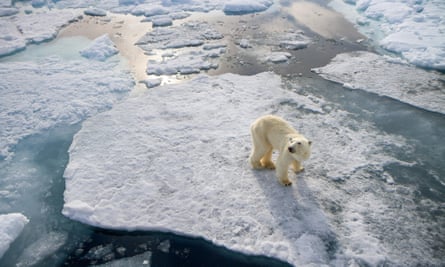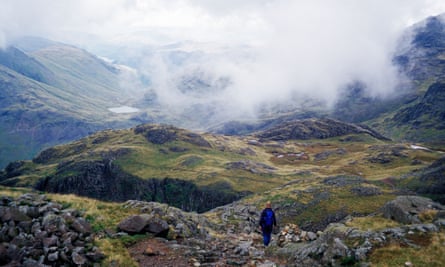Ignorant as I am, I don’t think I’d ever fully appreciated the breadth of disciplines involved in social science until I was asked to help judge the Economic and Social Research Council’s (ESRC) writing competition this year.
Held in conjunction with academic publisher Sage, and celebrating the ESRC’s 50th anniversary, the competition invited ESRC-funded PhD students from across the UK to use their creative and analytical skills and write a prediction of impact the social sciences and current research will have in 2065.
Science communication is currently something of a buzz phrase in the academic world, so it was particularly interesting to see how this crop of up-and-coming scientists set about encapsulating their hopes and fears for their disciplines over the next 50 years in under 800 words.
The overall winner was James Fletcher, and entries by Gioia Barnbrook and Josephine Go Jefferies were highly commended. All three winning entries are below; they’re very different in tone, style and focus. They make thought-provoking reading and I hope you enjoy them as much as I and my fellow judges did. They are reproduced here exactly as they were submitted to the judging panel.
CITY Inc. by James Fletcher
On February 12th 2015, I moved to London to begin my PhD. During my subsequent 50 years as a sociologist studying and living in them, cities have undergone momentous transitions. This brief history charts their recent prosperity through the story of London, a tale of decentralisation enabling visionary corporate finance and social science to recast the physical and socioeconomic architecture of cities.
I arrived in London just as the social sciences were beginning to develop the approaches that would ensure their success, focussing on practical impact, interdisciplinary collaboration and corporate involvement. I moved into the borough of Tower Hamlets, London’s economic powerhouse, with an economy worth £6billion annually and a young populace; more of whom had been born in Bangladesh than the UK. This wealth production, youth and diversity was representative of London more generally. Conversely, the rest of the UK had a faltering economy and an ageing conservative population with increasing immigration concerns. Thus, London and the UK were diverging. 2015 also saw unprecedented election gains for the Scottish National Party, triggering increased devolvement to Scotland, Wales, Northern Ireland and some cities. Strong SNP election performances in 2020 and 2025 forced the government to offer federalisation in 2027 to avoid a referendum on secession. Eventually, on December 12th 2042, England, Wales and Northern Ireland were also federalised, mirroring a global decentralisation trend.
Amidst decentralisation, London continued to grow, steadily gaining devolved powers. As 2043 arrived, the city into which I had moved 28 years previously was unrecognisable. From the 900m high tower in which I now lived, I surveyed a transforming cityscape, embracing recent technological developments. In 2022, Saudi Arabia completed Kingdom Tower, the world’s first kilometre high building. Besides technological innovation, it also had profound cultural implications; a range of social science consultants having pioneered community creation models. Under their guidance, its 5.5million ft2 of floor space offered offices, malls, accommodation and even artificial forests, stimulating a self-contained society with a culture of independence. Twelve years and four towers later, Kingdom City was a thriving metropolis of 2.1 million people. It represented a triumph for private finance and social science collaboration, setting a precedent for socially conscious corporation rule with minimal state involvement. Kingdom City prompted numerous equivalent developments throughout the Middle East and Asia in the late 2030s; social theory informed, self-contained, and privately administered. These express-cities dealt with population problems and boosted economies with ease, vindicating social planning.
Meanwhile, London had developed an immense housing crisis; its ballooning population shackled by construction regulation. London was desperate to emulate aforementioned eastern successes. It turned to its collection of world leading institutions, representing internationally renowned social psychologists, human geographers and many more, to plan ground-breaking reinvention. Throughout the 2040s, backed by multinational finance, London set about implementing their vision. Whilst primarily based around sociological community-seeding-housing ideas, this also facilitated a transport revolution. London already scorned cars, championing cycling and enjoying an unrivalled underground system following four Crossrail projects. Driverless electric vehicles had been increasingly present since the mid-2020s as battery technology improved. By the mid-30s, London proposed banning all human-driven petrol-fuelled vehicles, but the UK government was opposed; concerned that decreased fuel imports might jeopardise Gulf State relations. By the early-2040s, London was powerful enough to press ahead. Again the social sciences, bolstered by increasingly successful corporate ventures into city design, were instrumental in infrastructure planning, embedding the belief that public and corporate desires for liveability and efficiency were compatible. Resultantly, in 2053, the last human drove through the city. Simultaneously, influential internet scholars drove complete 5G rollout, providing unparalleled internet access. Contrastingly, large parts of the rest of the UK lacked 4G, creating a national digital divide. The scene was now set for divorce. In 2056 the government accepted a federalisation referendum. On May 4th 2058, London voted to become the UK’s fifth state.
Today, whilst technically federalised, London is essentially sovereign. Since the early-50s, state involvement has been nominal, particularly following parliament’s relocation to Manchester. London, like many 20th century capitals, now more closely resembles the Martian colonies than the nation surrounding it. These old nation states, largely unaltered from 2015, are increasingly inferior, especially as Space X’s mines and hydroponic innovations further improve city living standards. Social science’s guidance of private capital has enabled Jakarta, Doha and many more to smoothly transcend state structures, each now existing as a well-organised corporate amalgamation. This change is evident in my current work. Whilst trickledown economics and stringent immigration controls have all but ended real-term deprivation, inequality remains entrenched. Employed by London Inc., who are concerned by talent prevention, I am currently developing proposals to stimulate social mobility. This is just one example of how corporate-social science synergy is cultivating prosperous city societies in 2065.

The World in 2065: A rapidly changing climate and a renewed social science by Gioia Barnbrook
It is one of the most iconic visual representations of climate change: a lone polar bear stands on a thin ice floe, surrounded by a sea so grey it reaches the horizon and simply merges with the sky. In some variations the polar bear perches instead on rocks, its fur scraggly and muddy, standing protectively over cubs. Either way, the intended impact is the same; the picture tells us that these are the victims of the melting Arctic. It is rarer, at the moment at least, to see images of the human cost of climate change. We see its impacts primarily in terms of the natural world, and rarely think in terms of social costs. Communities in the Arctic, and the researchers who work alongside them, are already noticing drastic changes in their environment: rising temperatures are affecting sea ice and making traditional subsistence hunting activities far more precarious and dangerous; people have died travelling by snowmobile across previously solid ice that rising temperatures have made fragile. At the other extreme, record high temperatures across parts of Europe, Asia and the Middle East have led to fatalities. At present we in the UK are protected by our location, but we know from past experience that the intricacies of global markets, resource trading and politics mean that difficulties in other parts of the world have global impact. What happens in any one part of the world can have global ramifications.
If, for the moment, we still think primarily in terms of the natural consequences of climate change, in 2065 it will be impossible to ignore its social and humanitarian impacts: food and water shortages, mass migration and resource wars seem likely, coupled with large-scale political and economic unrest. Perhaps it is fitting that some of the most popular books and films of the last decade have been set in dystopian futures. Dreams of tomorrow, once populated by hover-boards, flying cars and holidays to Mars, now seem far less hopeful: they no longer come to us in the technicolour joy of the sixties and seventies, but in a muted, washed-out sepia.
From this vantage point, the future looks decidedly bleak, and we may well wonder what use we will have for the social sciences in a world of catastrophic environmental decline and change.
This would be a mistake. The social sciences are unique in their ability to enable us to understand the complexity of the conditions, networks and interconnections that influence human behaviour, and can operate on both the large and small scale. This information will be essential in aiding governments, NGOs and policy-makers with developing appropriate responses to the humanitarian and social crises climate change will bring. Those social sciences that emphasise long-term qualitative research, such as my own discipline of anthropology, will be of particular value in developing regional and group-specific responses. Anthropologists working in the Canadian Arctic and sub-arctic have already begun to work collaboratively with indigenous communities and scientific researchers in documenting the impacts of climate change and developing possible resilience and adaptation strategies. These studies also show how important interdisciplinary approaches are that involve local, scientific and social scientific perspectives: in the future we will be struggling with issues that have both natural and social causes and impacts, and we will need research that can synthesise these perspectives. Sustained ethnographic research, surveys and statistical modelling will help us to develop inter-disciplinary approaches that can do justice to the complexity of these challenges. In 2065 we will need the social sciences more than ever before.

They know how much oxygen I breathe, which is fine by me by Josephine Go Jefferies
As they say: High! Welcome to the Scafell Pioneering Neighbourhood! Did you enjoy the view of the algae farm terraces on your way up? They’re here to keep us comfortable, rather than for survival per se, although thinking about it, they do provide mitochondrial biofuel to maintain vast server systems, so you could argue they are, in fact, for survival.
So far from sea level, we get most of our potable water through our aspiration of the atmosphere aided by hyaluronic acid supplements. We are clean air fanatics up here, and it’s nice to recycle and know that the quality you put in is what you get out in water terms.
Your visit is sponsored by our historic brigade of mountain rescue volunteers – now that we’re all moving to higher ground where it’s cooler and drier, we do what we can, and hope you will too, to let your data be tracked while you’re up here to help advance the science of controlling human and natural conflagrations.
I’ve trained as a Mountain Search and Rescue Volunteer but we’re all standing members of the Fire Service, as we anticipate global warming to trigger more drought and forest fires, especially in the lowlands. Our hope is to make wildfire and combustion relics of the past. Only nostalgia buffs and the most privileged innovators can afford to burn oxygen - really who would want to? We all agree it’s precious.
Fire fighting is quite an interesting spectacle, actually, I don’t know if you’ll ever get to witness one unless it’s during a commemorative public fixture. Planned tabula rasa combats conflagration by asphyxiation - literally dialling down the oxygen in the atmosphere. It’s harder to control oxygen in the more populated areas, but they’re working on it.
Ooh, good question! I think it was someone who thought of reversing the power of flash mobs – I mean it’s still about solidarity but now it’s kind of organised to maintain the balance of power in society – so everyone does their bit. I think there’s less inequality now, do you know what I mean?
Forgive me, because I’m not an expert, but I think it started with experimental smart cities and they took up the idea from Zuurmond’s infocracies – I mean, the reason we managed to go solar initially is because the server farms required it, right? The power needed to run anticipatory rather than participatory democracies?
Some say they manufacture dissent - for drama, and catharsis – but I think it’s also to flush out the data flow from shadow populations who are more apathetic – make everyone a heavy breather, at least for a little while, you know, just enough to register a reading and get a snapshot of oxygen consumption at a given time. You know what they say: Sport is good. Data rules... right? Anyway, during the spontaneous census they will interview me to see why I’m in favour of this and against that. Just to ensure my opinions haven’t been hacked, you know, to guard against corruption by harmful private interests. Data rules infocracies, and democracies people do!
So how it works is the actions we take are screened for relevance to any given question. We consent to our acts and opinions being counted, and it’s made transparent in the continuous count so we understand the implications of our acts and opinions as a collective. Any inconsistencies are flagged, and we get an option to compare ourselves against the values of the electorate.
What, actual elections? They’re kind of just ceremonial, really. I guess it’s less dramatic but we’re a more steady community - without all that manipulative rhetoric flying about in what’s left of the news media, making everyone angry and anxious. Life’s tough enough up here without making enemies of your neighbours. The small things seem to matter more these days, which I’m in favour of.
My paid job is to test these wearables designed to optimise blood oxygen saturation. We’re all extreme sportswomen up here! Implants? Nah, it’s easier to upgrade with skins and surfaces are minimally invasive. Go smooth systems! These info drones help me to train at altitude, and will accompany the family on holiday soon. My Search and Rescue duties, my job and my life are intertwined. There were great ideological battles in the past about work-life balance, but that was before ubiquitous streaming, which gives our team advantages on the happiness meter, earning time-off in lieu. It’s just the idea of time-off, really, but ideas count! I think happiness matters more than bitcredit, care dollars and the million other point schemes you could choose. Anyway, while I’m on holiday, as long as the geo-climactic conditions and my exertion levels show positive alignment, I get professional development credit and a dopamine rush! Everyone’s happy!
